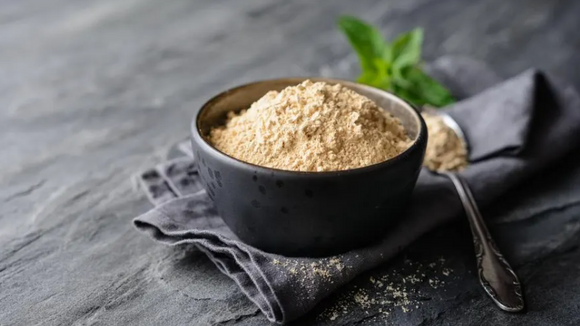Botanical Profile
The maca plant belongs to the Brassicaceae family, sharing its lineage with other cruciferous vegetables such as broccoli (Brassica oleracea), cauliflower (Brassica oleracea var. botrytis), and kale (Brassica oleracea var. acephala). Maca grows predominantly in the high plateaus of the Peruvian Andes, withstanding harsh weather conditions and poor soil. The plant produces a radish-like tuber, which is the part primarily consumed, often in powdered form.
Benefits of Maca
Hormonal Balance
Among the most notable benefits of maca is its potential to balance hormones. A study in the International Journal of Biomedical Science found that maca could help decrease symptoms of menopause such as hot flashes and sleep disruptions by supporting endocrine health^
Energy Boost
Maca is rich in essential nutrients including proteins, fibers, and minerals that can offer an energy boost. Research published in Phytotherapy Research indicated that participants who consumed maca extract showed improved endurance during physical activities.
Sexual Health
Maca has traditionally been used as an aphrodisiac. Studies have shown that it can improve sexual health, with a systematic review from BMC Complementary Medicine and Therapies reporting enhanced sexual desire in men and women who consumed maca regularly.

Photo by Alexander Mils on Unsplash
Easy-to-Prepare Maca Recipes
Maca Smoothie
Ingredients:
Preparation:
- Blend all the ingredients together until smooth.
- This recipe serves as a great breakfast or afternoon snack, providing an energy boost for the day.
Maca Energy Balls
Ingredients:
- 1 cup of dates
- 1/2 cup of almonds
- 2 tablespoons of maca powder
- 1/4 cup of shredded coconut
Preparation:
- Blend all the ingredients (except the coconut) in a food processor until they form a sticky mixture.
- Roll the mixture into balls, coat with shredded coconut, and refrigerate for an hour.
- These energy balls are a quick and easy snack that harnesses the benefits of maca.

Photo by Towfiqu barbhuiya on Unsplash
Questions and Answers
Q: Is maca safe for everyone to consume?
A: While maca is generally safe for most people, it should be consumed in moderation. People with thyroid problems should be cautious as maca contains goitrogens which may interfere with normal thyroid function.
Q: Can maca help with fertility issues?
A: Some studies suggest that maca can improve fertility by enhancing sperm quality in men. However, more research is needed, and individuals should consult a healthcare professional for advice.
Q: How does maca taste?
A: Maca has a unique taste, often described as earthy and nutty. Some people enjoy it, while others prefer to mix it with other ingredients to mask the flavor.
Q: Can I grow maca at home?
A: Maca grows best in specific high-altitude conditions found in the Andes. It might be challenging to replicate these conditions at home, but you can certainly try growing it if you have a suitable environment.
Q: How much maca should I take daily?
A: The appropriate dosage can vary depending on individual factors. However, a general recommendation is 1-2 teaspoons of maca powder daily. As with any supplement, it's important to consult a healthcare professional before starting a new regimen.
Referrals
- Dini, A., Migliuolo, G., Rastrelli, L., Saturnino, P., & Schettino, O. (1994). Chemical composition of Lepidium meyenii. Food Chemistry, 49(4), 347-349.
- Hermann, M., & Hellmuth, H. (1997). Lepidium peruvianum (maca) plant from the high Andes of Peru: From tradition to science. Rostlinna Vyroba, 43(12), 505-510.
- Meissner, H. O., Mscisz, A., Reich-Bilinska, H., Mrozikiewicz, P., Bobkiewicz-Kozlowska, T., Kedzia, B., ... & Barchia, I. (2006). Hormone-Balancing Effect of Pre-Gelatinized Organic Maca (Lepidium peruvianum Chacon): (I) Biochemical and Pharmacodynamic Study on Maca using Clinical Laboratory Model on Ovariectomized Rats. International Journal of Biomedical Science : IJBS, 2(3), 260–272.
- Julio Rubio, J., Caldas, M., Dávila, S., Gasco, M., & Gonzales, G. F. (2006). Effect of three different cultivars of Lepidium meyenii (Maca) on learning and depression in ovariectomized mice. BMC Complementary and Alternative Medicine, 6, 23.
- Shin, B.C., Lee, M.S., Yang, E.J., Lim, H.S., Ernst, E. (2010). Maca (L. meyenii) for improving sexual function: a systematic review. BMC Complementary Medicine and Therapies, 10, 44.
- Gonzales, G.F., Cordova, A., Vega, K., Chung, A., Villena, A., & Gonez, C. (2001). Effect of Lepidium meyenii (maca) on sexual desire and its absent relationship with serum testosterone levels in adult healthy men. Andrologia, 34(6), 367-372.









